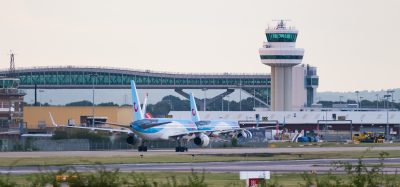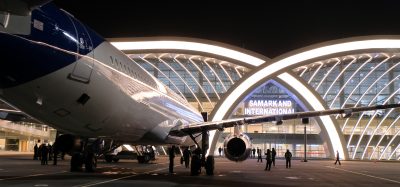ACI economic analysis shows COVID-19 is an existential threat to aviation
- Like
- Digg
- Del
- Tumblr
- VKontakte
- Buffer
- Love This
- Odnoklassniki
- Meneame
- Blogger
- Amazon
- Yahoo Mail
- Gmail
- AOL
- Newsvine
- HackerNews
- Evernote
- MySpace
- Mail.ru
- Viadeo
- Line
- Comments
- Yummly
- SMS
- Viber
- Telegram
- Subscribe
- Skype
- Facebook Messenger
- Kakao
- LiveJournal
- Yammer
- Edgar
- Fintel
- Mix
- Instapaper
- Copy Link
Posted: 2 April 2020 | International Airport Review | No comments yet
As a result of travel restrictions and border controls, the COVID-19 pandemic has been estimated to eradicate 38.1 per cent of passenger traffic in 2020.


Economic analysis conducted and published by ACI World has found that, on a global level, the COVID-19 outbreak is estimated to eradicate two-fifths (38.1 per cent) of passenger traffic – equivalent to 3.6 billion passengers in absolute terms – and almost half of revenues for airports in 2020 as compared to the forecasted pre-pandemic figure.
The shortfall in the number of passengers and the cancellation of flights as a result of travel restrictions, border closures and country-wide lockdowns to mitigate the spread of COVID-19 will continue to result in reduced revenues. While the industry was expected to generate about $172 billion in 2020, it is now predicted it could lose approximately 45 per cent (more than $76 billion) by the end of 2020.
Angela Gittens, ACI World Director General, said: “A drastic decline of such magnitude for the global airport industry represents an existential threat. A swift, effective and equitable economic policy response from governments is needed to protect millions of jobs, protect essential operations and give the industry the greatest chance to weather the storm and recover quickly. The global airport industry has faced multi-billion-dollar losses already in the first quarter of 2020, but it is now predicted that the impact of COVID-19 will extend not only to the second quarter of 2020, but also the second half of the year.”
Gittens continued: “Most experts in the air transport industry agree that recovery may take 12-18 months to reach pre-crisis traffic levels and the industry may not record pre-COVID-19 traffic volumes again before the end of 2021. A fair and equitable global economic policy response is required to safeguard essential airport operations, to protect millions of jobs worldwide, and to ensure the survival of the industry and lay the foundation for a fair recovery.”
As revenues continue to decrease rapidly, airports are taking all possible measures to preserve financial stability. While airports have high fixed and unavoidable costs, they are reducing, to a minimum, variable costs. This includes measures such as closing portions of infrastructure, postponing capital expenditur, and addressing staffing costs. These difficult decisions are not taken lightly, but are necessary in response to the COVID-19 crisis facing the industry.
As regards prospects for recovery, ACI believes it is reasonable to foresee faster recovery in domestic passenger traffic. In the case of international passenger traffic, however, the recovery will take longer, as any international flight implies reciprocal permissions, while various states will emerge from the current crisis at different times with varying pace of relaxation of the recently imposed restrictions.
Related topics
Aeronautical revenue, COVID-19, Economy, Non-aeronautical revenue, Passenger volumes


















